
As the glow of the Sun's corona cast down on me, I looked around and saw the joy on everyone's faces. We were transfixed by something familiar, looking unfamiliar. What should've been there, seemed not to be there - the only clue the Sun gave away was its pinkish-red chromosphere flaring out from behind the Moon. It's no wonder that the Choctaw Native Americans once thought that a black squirrel was eating the Sun.
The clouds rolled in and blocked my view of the corona, leaving me to focus on my immediate surroundings. The hills had disappeared in the darkness, the usual insect and duck sounds had been replaced by the 'wows' of the crowd and the goosebumps on my arms weren't just caused by the chilly air.
This was not my first eclipse, but the combination of its long duration and the joy of the festival crowd is what made it special.
A childhood dream
I grew up thinking that eclipses were only accessible to people living close to their path. So when the 1999 total eclipse passed through Cornwall, I caught the train from my home in Leicester, pitched a tent and watched in wonder as the shadow swept across the cloudy countryside. I watched eclipses on the television over the next 18 years assuming it was too expensive or too difficult to experience one outside the UK.
By chance, my family were in reach of Oregon, USA for the 2017 total eclipse and I discovered that, with a bit of research, it would be relatively easy to see it. During that eclipse I was overwhelmed by the colours of the sky - full of sparkling blues and purples that I had never witnessed before. The sight of the corona drev me in and I lay on the Oregon plains afterwards feeling like I had experienced something incredible. I vowed to return to the US for the 2024 eclipse.
Denne historien er fra June 2024-utgaven av BBC Sky at Night Magazine.
Start din 7-dagers gratis prøveperiode på Magzter GOLD for å få tilgang til tusenvis av utvalgte premiumhistorier og 9000+ magasiner og aviser.
Allerede abonnent ? Logg på
Denne historien er fra June 2024-utgaven av BBC Sky at Night Magazine.
Start din 7-dagers gratis prøveperiode på Magzter GOLD for å få tilgang til tusenvis av utvalgte premiumhistorier og 9000+ magasiner og aviser.
Allerede abonnent? Logg på

Could We Find Aliens by Looking for Their Solar Panels?- Designed to reflect ultraviolet and infrared, the panels have a unique fingerprint
Researchers searching for life beyond Earth spend a lot of time thinking about what telltale signs might be detectable astronomically. Forms of unambiguous evidence for the presence of life on another world are known as biosignatures. By extension, techno signatures are indicators of activity by intelligent, civilisation-building life.

Antimatter- In our continuing series, Govert Schilling looks at antimatter, the strange counterpart to most of the matter filling our Universe
Particles and corresponding antiparticles are very much alike, except they have opposite electrical charges. For instance, the antiparticle of the electron - known as the positron - has the same tiny mass, but while electrons carry a negative electrical charge, positrons are positively charged.
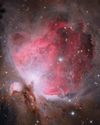
Where Have All The Milky Way's Early Stars Gone?- Our Galaxy has a curious lack of pristine stars
The Big Bang produced a Universe filled almost exclusively with hydrogen and helium; all other elements - what astronomers call metals - were produced by stars, supernovae and everything that happens later. So if you can pick out a pristine star with no metals polluting it from among the billions in the Milky Way, then you are likely to have a star dating from our Galaxy's earliest days.
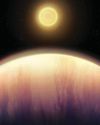
Inside The Sky At Night - Two years ago, exoplanet scientist Hannah Wakeford received some of the first data from the JWST
Two years ago, exoplanet scientist Hannah Wakeford received some of the first data from the JWST. In July's Sky at Night, we discovered what she's learned since then.

How to stack DSLR data in Siril
Easily combine multiple frames to boost detailin your astro photos
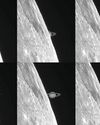
Lunar occultation of Saturn
You'll need to strike a balance on 21 August to capture the Moon covering the ringed planet
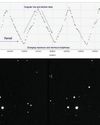
How to plot a variable star light curve
A rewarding project to chart stars that change brightness
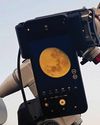
Smartphone photography with a telescope
Mary Mcintyre explains how to get impressive night-sky images using your phone
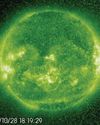
Once-a-century solar storm is overdue
If a Carrington Event struck today it would be catastrophic, says Minna Palmroth
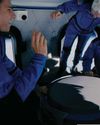
The new era of human spaceflight
There's been a step-change in crewed space missions since the dawn of the 21st century. Ben Evans charts its course and looks ahead to future horizons